Hau River ecological zone farm - Core of Agro-Ecological tourism chain
Thứ Năm 31/08/2023 , 19:43 (GMT+7)(VAN) The first ecological zone invested in the area of Co Do District, Can Tho City, together with surrounding orchards as satellites, creating an agro-ecological tourism chain.
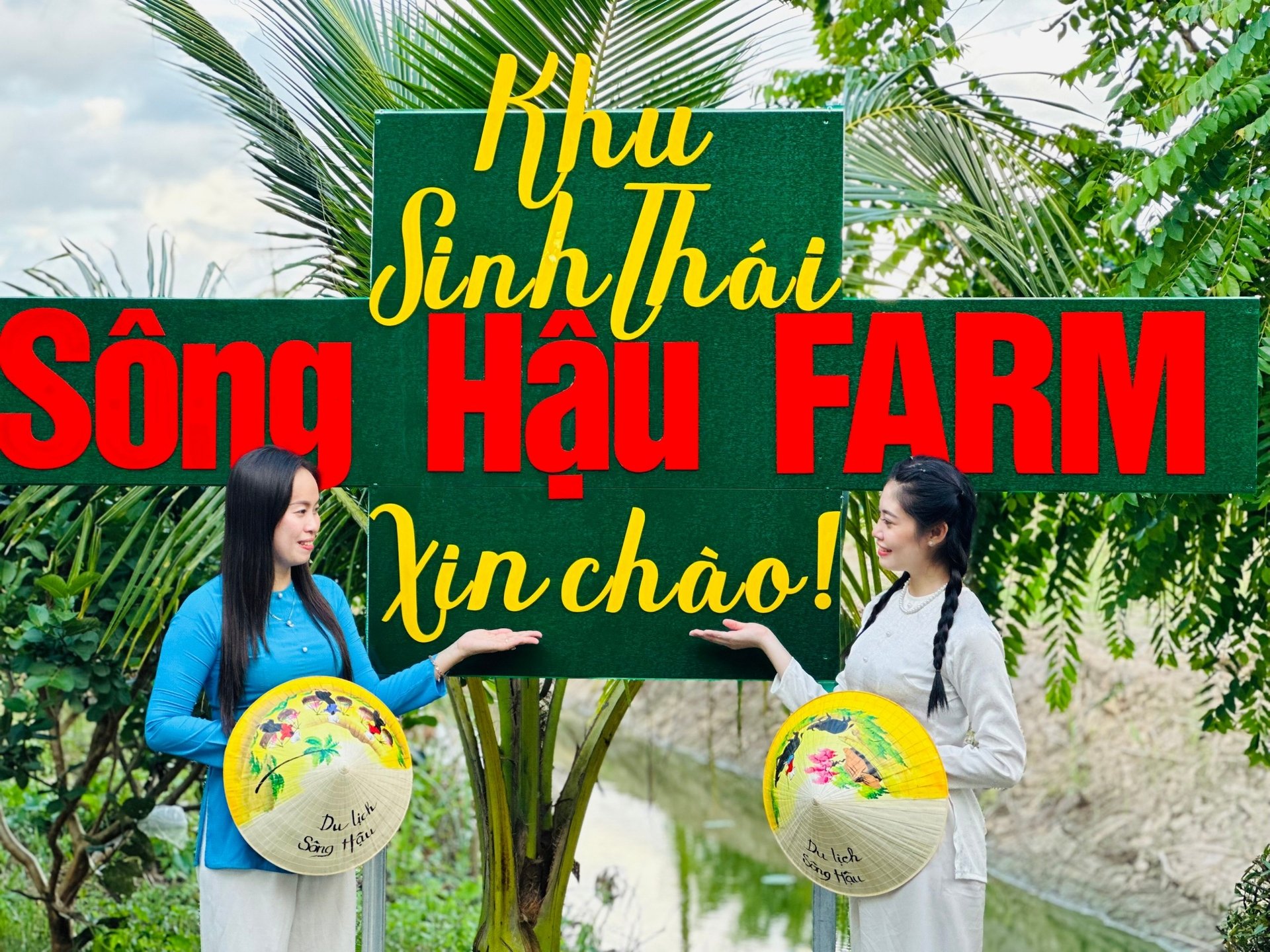
Implementing the Resolutions of the District Party Committee of Co Do and Can Tho City on promoting sustainable collective and orchard-based economic development during the period of 2020 - 2025, with a vision towards 2030, as well as the Agro-Ecological Tourism Development Program in rural areas within the district. Since late 2019, the Hau River Farm has initiated the Hau River Ecological Farm Project (Hau River Ecological Zone Farm) for the period 2020 - 2025, covering an area of over 14 hectares, located in Thoi Hung Commune. This establishes the first eco-tourism destination in the district, attracting tourists to the local area.
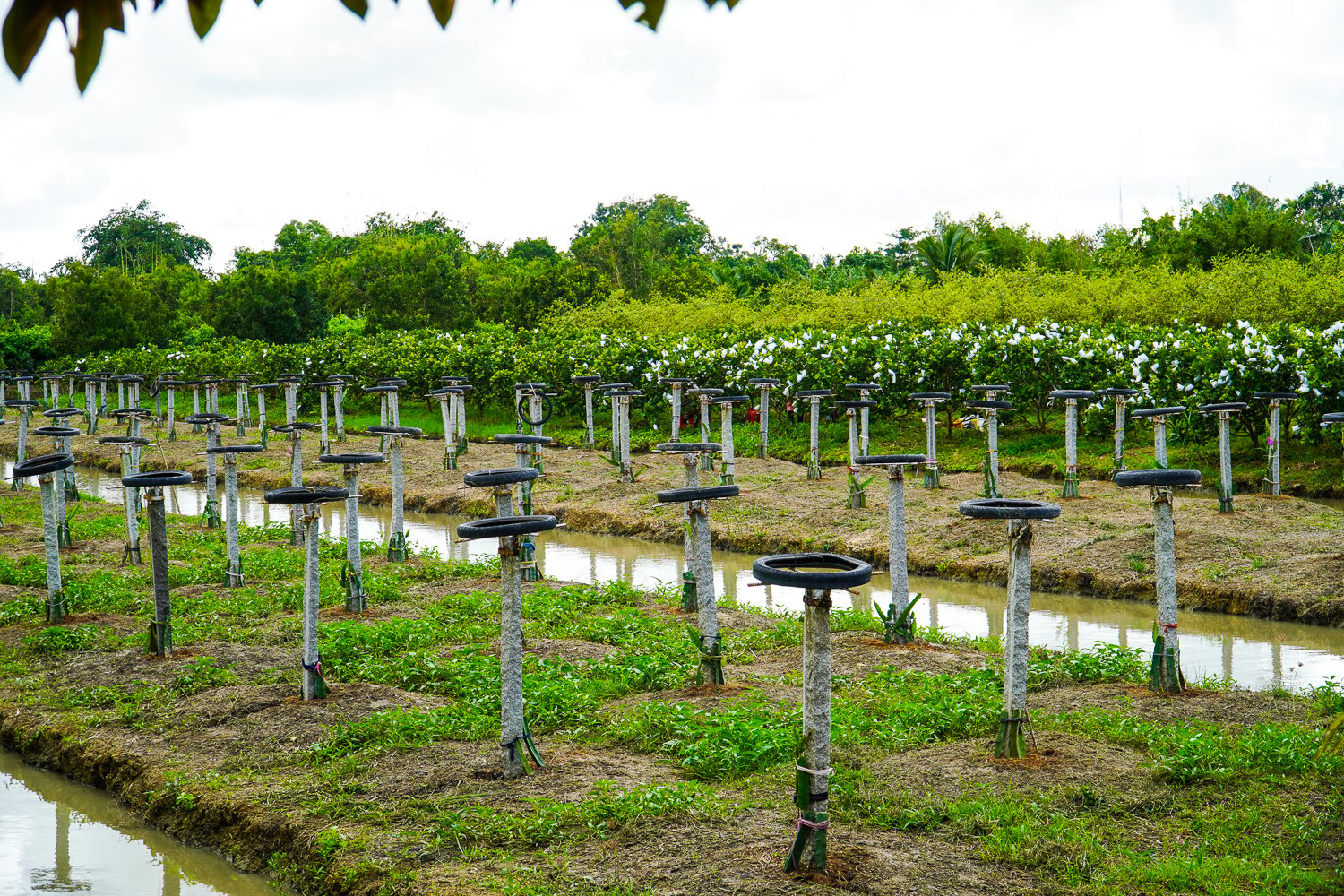
The Hau River Ecological Zone Farm allocates 7 hectares of land to grow over 20 different types of fruit trees, along with an organic vegetable garden area, ensuring year-round product availability. Among them, fruit trees that are currently bearing fruit include Ruby guava, Thai persimmon, dragon fruit, apples, peach, pomegranate, Taiwanese custard apple, golden apple, lychee, grapefruit, strawberry, avocado, cocoa…
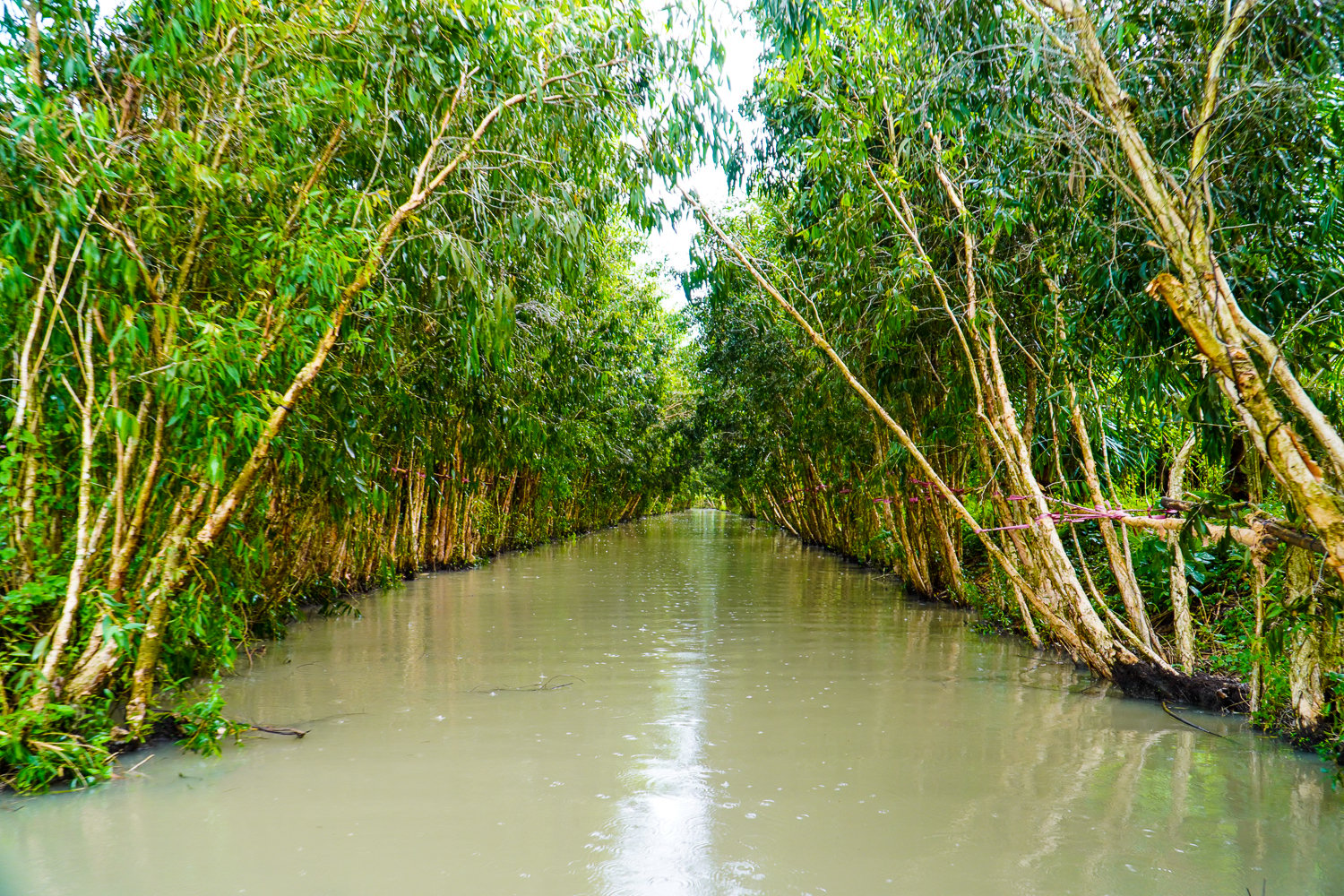
Additionally, 2 hectares are dedicated to planting melaleuca forests and acacia trees, totaling over 500 thousand trees, aimed at conserving the natural forest ecosystem and attracting various birds and herons. The remaining area is being developed for recreational activities such as underwater entertainment zones, traditional games, the establishment of homestays for visitor accommodation, and an on-site fishing culinary area…
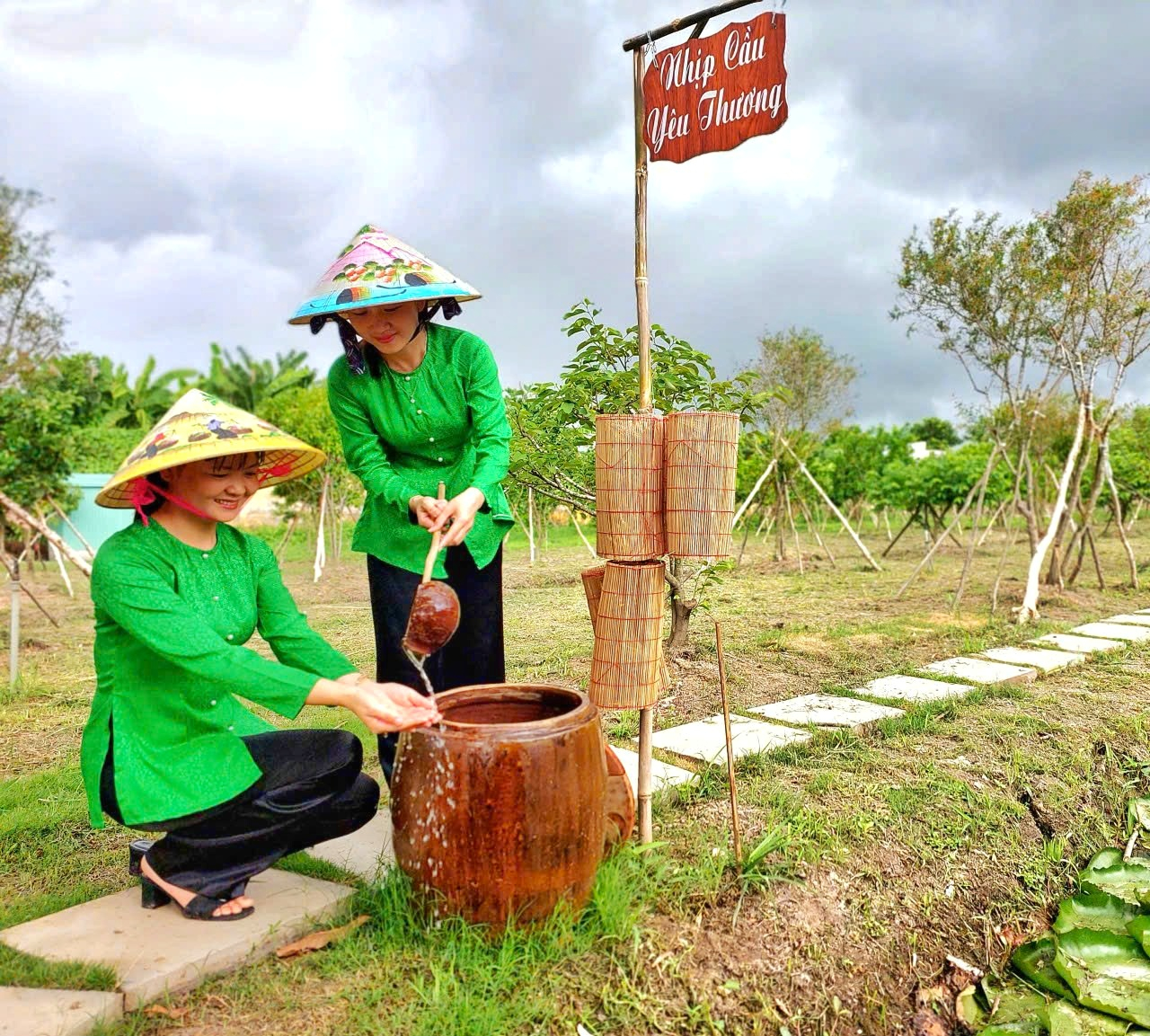
The Hau River Ecological Zone Farm Project is expected to be completed and ready to serve tourists by the end of 2023. This will serve as the core point, with surrounding orchards acting as satellites, forming an agro-ecological tourism chain.
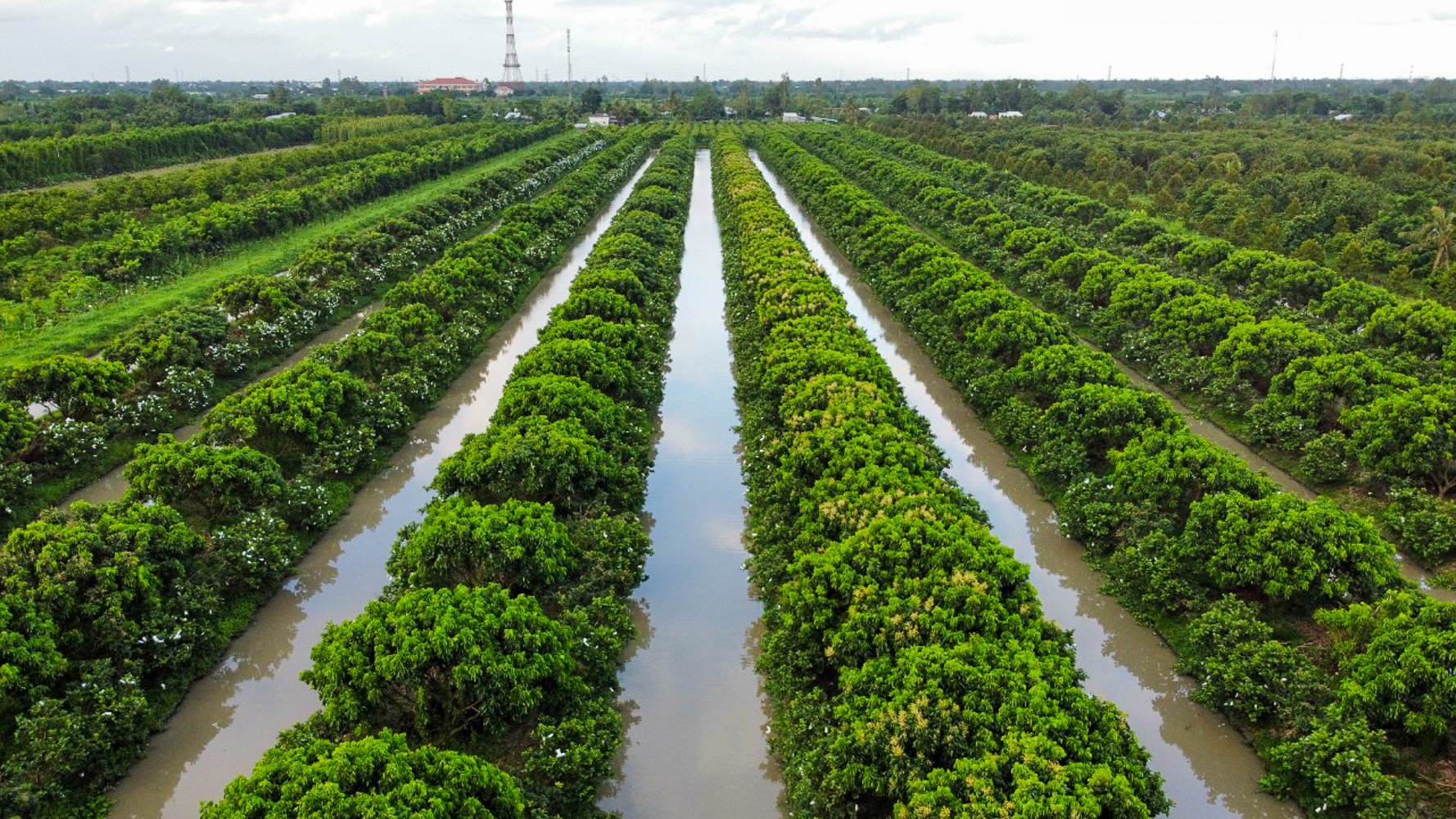
The entire Hau River Farm currently encompasses over 6,200 hectares of agricultural production land. Among them, nearly 3,000 hectares are dedicated to specialized fruit orchards, over 1,400 hectares for rice production, and over 300 hectares for aquaculture. This serves as a significant advantage in creating a large source of raw materials and diverse fruit products adhering to VietGAP and GlobalGAP standards, ensuring food safety.
Aquaculture, which involves the breeding and cultivation of aquatic organisms such as fish, crustaceans, and mollusks, provides a sustainable means of protein production and supports a diversified agricultural portfolio. By integrating aquaculture into its operations, the farm not only enriches local diets with protein-rich seafood but also mitigates pressures on wild fisheries, contributing to the conservation of marine ecosystems.
This strategic allocation of agricultural land serves as a foundation for the farm's commitment to quality and safety. Adhering to both VietGAP and GlobalGAP standards, the Hau River Farm ensures that every step of the cultivation process meets rigorous guidelines for agricultural practices. From the careful selection of seeds to responsible water management, pest control, and post-harvest handling, these standards ensure that the final produce is of the highest quality and free from harmful contaminants.
By creating a vast source of raw materials and cultivating diverse fruit products, the Hau River Farm is not only enhancing food security for the local community but also contributing to the broader agricultural landscape. This holistic approach, blending tradition with innovation and sustainability, is a cornerstone of the farm's mission to provide safe, nutritious, and high-quality produce to its customers while nurturing the environment and local livelihoods
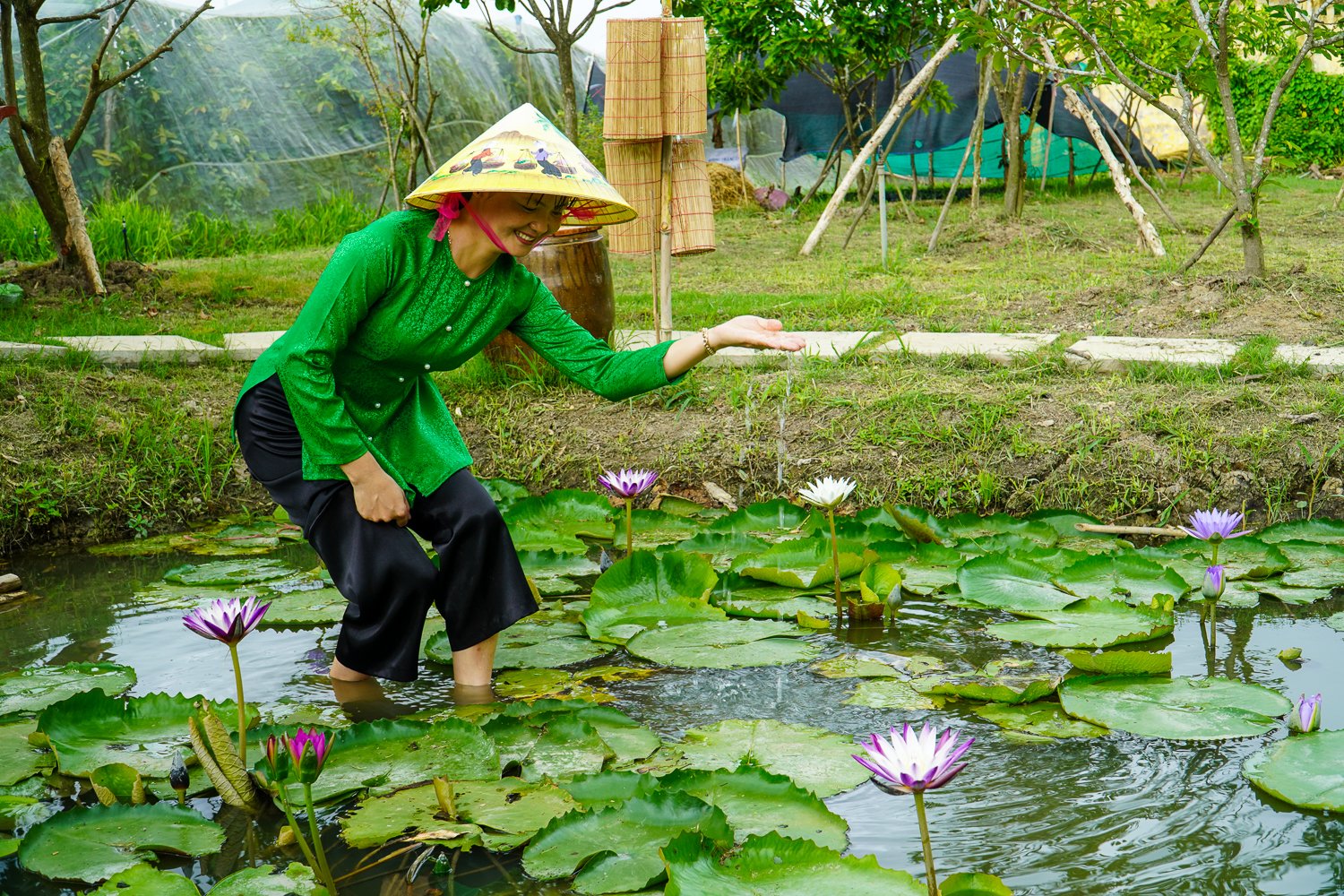
Presently, eco-tourism destinations within Can Tho City and nearby provinces in the Mekong Delta share many similarities. Mr. Nguyễn Thanh Phu, Director of Hau River Farm, outlines a new approach for the Hau River Ecological Zone Farm, which aims to minimize the use of reinforced concrete construction, even with a large land area. The focus is on using bamboo, leaves, and shaping materials from fruit trees, promoting a close connection with nature, and particularly establishing a natural ecosystem conservation area.
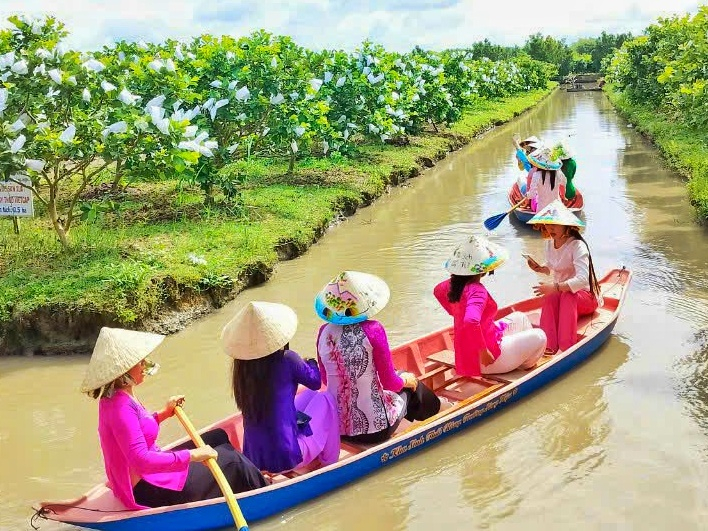
Furthermore, the Hau River Ecological Zone Farm is enhancing its collaboration with various travel agencies both within and outside Can Tho City to develop tours and itineraries that allow visitors to experience the site. This combines agro-ecological tourism with activities involving local resources and includes visits to the national historical site of the Communist Party of Annam, located about 10 kilometers away.
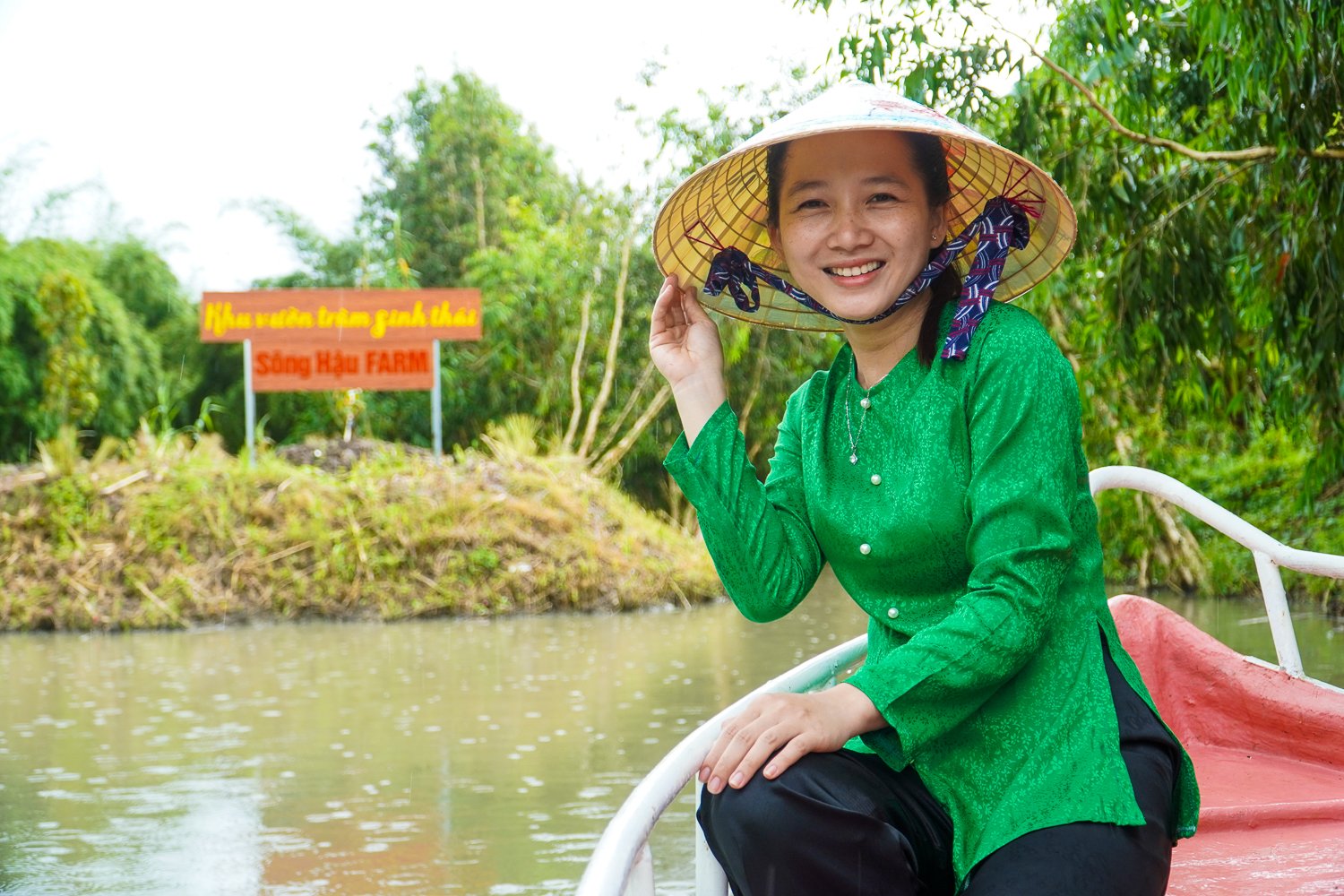
The Hau River Ecological Zone Farm is conveniently situated along provincial road routes, providing easy access for visitors traveling by land and inland waterways. This ensures the ease of visiting, touring, relaxing, and consuming locally distinctive agricultural products.
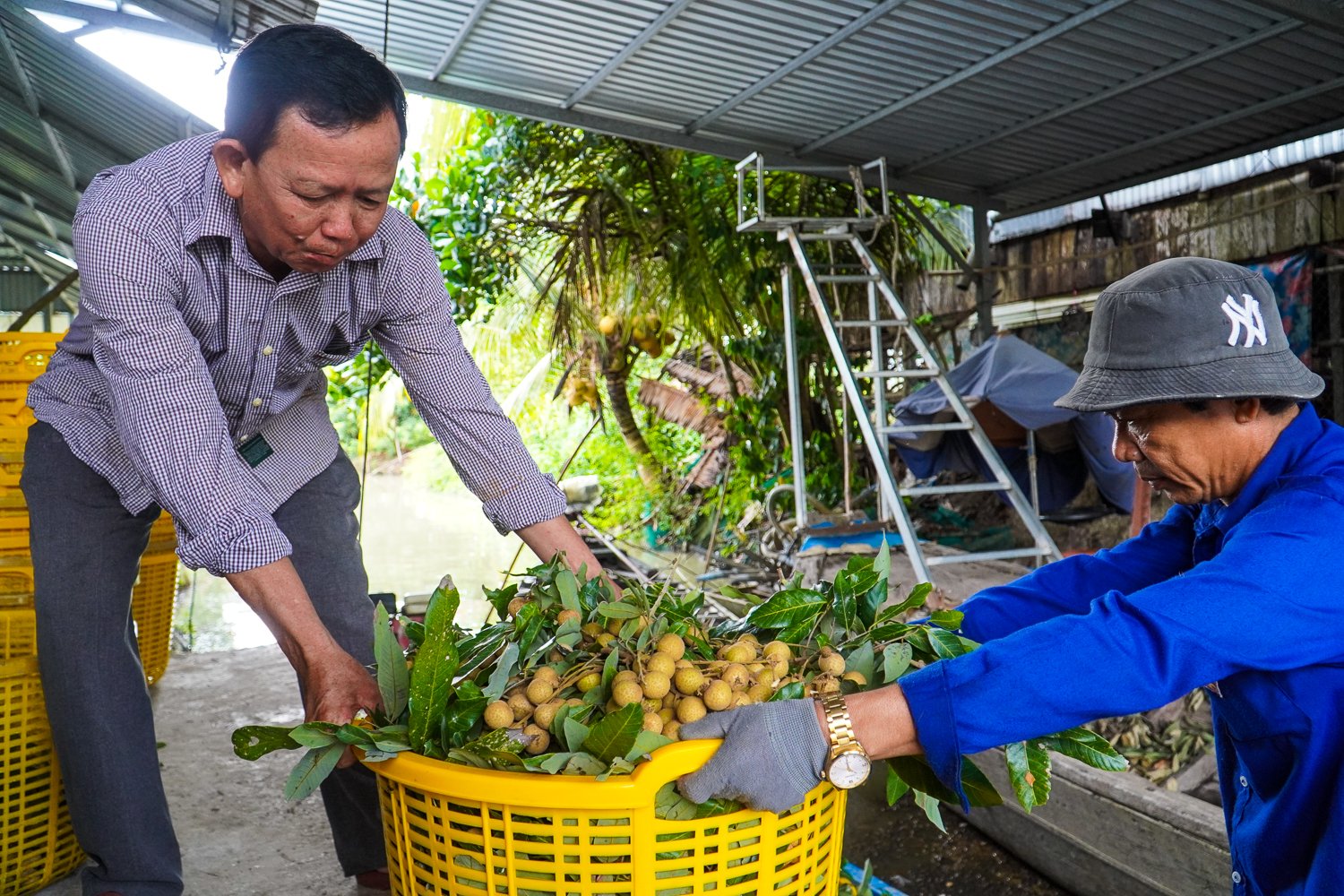
The Hau River Ecological Zone Farm is expected to contribute significantly to local economic and social development, as well as local businesses. It establishes a link between the consumption of fruit products by local farmers through tourism, substantially addressing local employment needs.
Translated by Nguyen Hai Long

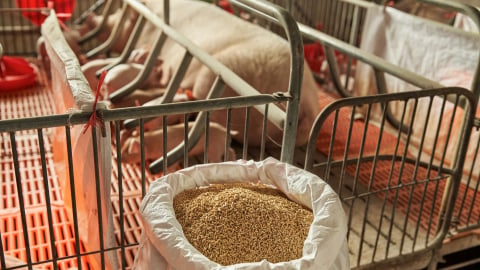
![Advanced mariculture – an inevitable trend: [4] Accompanied by scientists](https://t.ex-cdn.com/nongnghiepmoitruong.vn/480w/files/sohk/2025/05/13/1941-pgsts-vo-van-nha-140958_717.jpg)
/2025/05/26/1716-4-nongnghiep-191706.jpg)